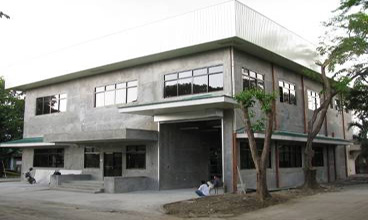Research and testing institutes as well as regional standards and testing laboratories under the Department of Science and Technology (DOST) are now better equipped to handle requests for research, testing and validation services from manufacturers, researchers and students.
From 2007 to 2011, the DOST allocated P365 million for the upgrade and renovation of its seven research and development institutes (RDIs) to address the need for safe, accurate and cost-effective testing services in the food, metals, furniture, textile, cosmetics and other industry sectors.
The research institutes that were upgraded include Food and Nutrition Research Institute (FNRI), Forest Products Research and Development Institute (FPRDI), Philippine Textile Research Institute (PTRI), Philippine Nuclear Research Institute (PNRI), Industrial Technology and Development Institute (ITDI), Advanced Science and Technology Institute (ASTI) and Metals Industry Research and Development Center (MIRDC).
Additionally, the DOST allocated P156 million to upgrade the facilities and expand the scope of services of its 14 Regional Standards and Testing Laboratories (RSTLs) by building capacity on specialized tests, enhancing manpower capability, and providing appropriate safety equipment and support to laboratory wastes treatment.
Dr. Amelia P. Guevara, Executive Director of DOST’s Philippine Council for Industry, Energy and Emerging Technology Research and Development (PCIEERD) and Officer-In-Charge of the Office of the DOST Undersecretary for Research and Development, said that the upgrade would enable the country’s laboratories to respond quickly and efficiently to clients who are pressured to comply with market and regulatory requirements.
“With the renovated and improved facilities, tests that were previously done overseas could now be conducted in the country. This will enable the Philippines to save hundreds of thousands, if not millions of pesos by utilizing local skills and resources,” said Dr. Guevara.
As the country’s lead agency in research and development (R&D) for the industry, energy and emerging technology sectors, DOST-PCIEERD monitored the projects on the upgrading and renovation of laboratories and facilities that were funded under the DOST’s Grants-in-Aid program.
Renovated facilities, improved capabilities & increased testing services
Because of the upgrade, the RDIs and RSTLs can now offer more R&D, testing and validation services.
DOST-FPRDI, for instance, enhanced its service on property testing of composites, papers, wood and furniture, while DOST-ITDI now has the capability to conduct nanoparticle size and heavy metals analyses at parts-per-billion level. DOST-MIRDC upgraded its design, engineering, prototyping, metalworking and fabrication capabilities.
Meanwhile, DOST-PNRI enhanced its capabilities for radioactivity analysis of food, and DOST-PTRI enhanced its capabilities on dyeing, color matching and finishing services.
DOST-FNRI upgraded its food processing, nutrient bio-availability and bio-chemical assessment laboratories. DOST-ASTI enhanced the capabilities of its Grid Laboratory on high performance computing service for running numerical weather models and bio-informatics programs.
On the other hand, the RSTLs offer new testing services to address the needs of the priority industries in the regions.
Servicing more clients, generating bigger income
From 2004 to 2006, the seven DOST research institutes served an average of 8,328 clients a year for R&D, processing and testing services. “With the upgrading of the RDIs, the number of clients served grew to an average of 28,249 per year – an increase of 239%,” said Dr. Mario V. Capanzana, who is currently the Director of DOST-FNRI and is responsible for overseeing the implementation of the project on RDI upgrading.
According to DOST Region IX Director Brenda L. Nazareth-Manzano, the 14 RSTLs generated a total of P62.5 million from test fees between 2007 and 2011, and that the number of tests conducted by RSTLs saw an average increase of 14%.
Dir. Nazareth-Manzano said that the project also provided the needed additional manpower that enabled the RSTLs to cope with the increasing testing demand of its customers. Dir. Nazareth-Manzano heads the project on RSTL upgrading.
The project on upgrading RDIs is part of the DOST’s program “Establishment, Implementation and Maintenance of Management Systems in all RDIs and Regional Offices,” which aims to upgrade the facilities of DOST laboratories to support their R&D, processing and S&T services. Aside from upgrading research and testing facilities, the program aims to establish, implement and maintain laboratory and quality management systems in all DOST RDIs and Regional Offices.
On the other hand, funding support for RSTL upgrading was made possible through the project “Rationalized Upgrading of the DOST Regional Standards and Testing Laboratories.” (Margarette T. Maceda, RITTD-PCIEERD)

The new CNC lathe machine of DOST-MIRDC will help boost the institute’s design, engineering, prototyping, metalworking and fabrication capabilities.

DOST-PNRI upgraded its Cobalt 60 Facility to provide extended storage transport system for irradiated and unirradiated products.

The Furniture Testing Center of DOST-FPRDI is equipped with modern furniture testing machines, including a horizontal fatigue and stability test machine (shown in the photo) that evaluates the strength, durability and stability of tables when horizontal force is applied continuously.

The R&D Laboratory of DOST-PTRI houses a ring spinning frame that can manufacture various types of yarns, specifically indigenous fibers blended with polyester or cotton for use in the production of Philippine tropical fabrics.
For more information:
Dr. Virginia G. Novenario-Enriquez
Chief, Research Information and Technology Transfer Division
Philippine Council for Industry, Energy and Emerging Technology
Research and Development
Tel: (632) 837.2071-82 local 2102/2109
Fax: (632) 837.3168/ 837.6154
This email address is being protected from spambots. You need JavaScript enabled to view it.




